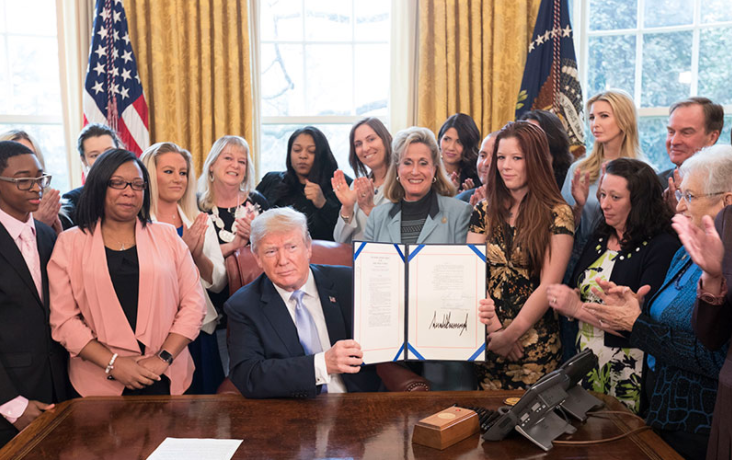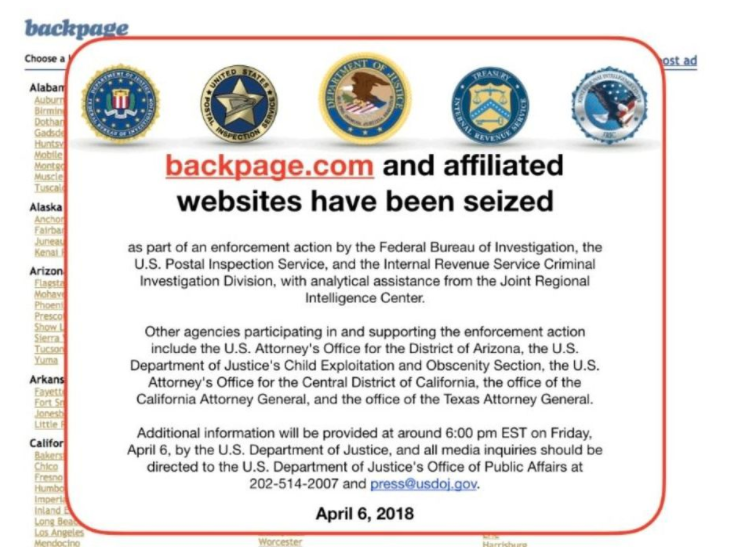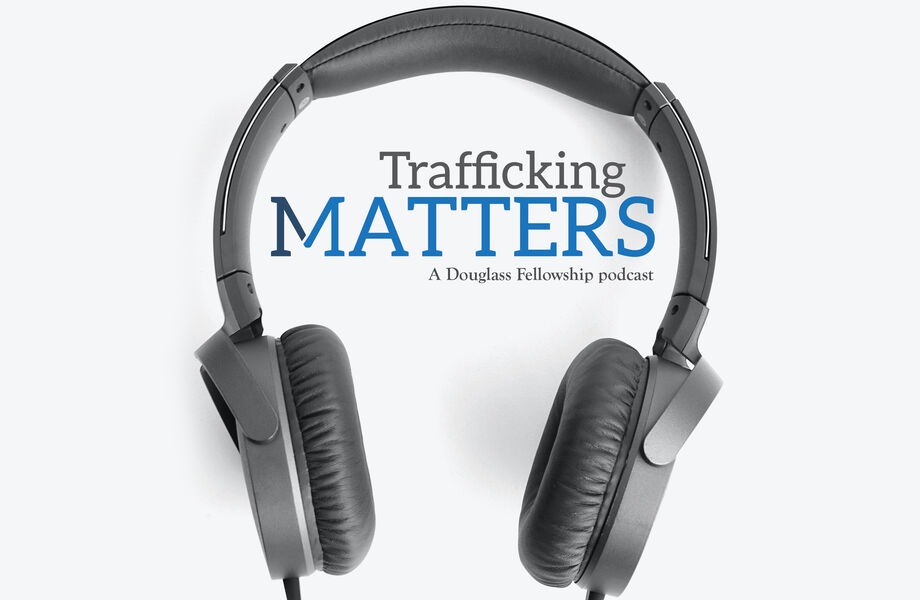On April 11, 2018, President Trump signed the SESTA/FOSTA bill package into law. Despite debate over the merits of the bill—with the tech industry widely in opposition and many human trafficking policy advocates in favor—it had overwhelming bipartisan support. SESTA/FOSTA passed both chambers of Congress by significant margins: 97-2 in the Senate and 388-25 in the House of Representatives. Without entering into the heated arguments on both sides of the debate, we present several possible ramifications to consider as this new law takes effect.

Four Key Points of SESTA/FOSTA
The bill’s unfortunate acronyms spring from two different bills: the Senate’s “Stop Enabling Sex Traffickers Act of 2017” (SESTA) and the House’s counterpart, “Fight Online Sex Trafficking Act” (FOSTA). Legislators designed SESTA/FOSTA to target Backpage.com and other websites from facilitating sex trafficking. The impact of SESTA/FOSTA may extend far beyond the efforts to challenge Backpage.com.
1. Emphasizing “Benefiting” Accountability
Under the current law prohibiting sex trafficking,1 a person can be held criminally liable for either engaging in one of 10 trafficking activities (recruiting, harboring, transporting, etc.)2 or benefitting financially from participation in a sex trafficking venture. Most criminal actions are brought under the first avenue, pursuing those who are actively involved in facilitating a sex trafficking operation.
SESTA/FOSTA may encourage prosecutors to pursue cases under the “benefiting” theory of liability. The new law animates the phrase “participation in a venture” by providing a new definition: SESTA/FOSTA defines it as “knowingly assisting, supporting, or facilitating [an act of sex trafficking].” The use of “assisting, supporting, or facilitating” may draw more passive conduct within the “participating” sphere. This new definition might lead to more criminal actions pursued under the second avenue for liability.
For example, a landlord who knowingly rents a house to a sex trafficker to use as a brothel would be subject to criminal liability under the new definition of “participation in a venture.” The same would be true for a website owner and operator who knowingly hosts ads for victims of sex trafficking. In either scenario, the new definition extends criminal liability not only to those who are actively involved in sex trafficking, but also to those who knowingly assist in that enterprise.
2. Expanded Civil Suits by State Attorney Generals
SESTA/FOSTA enhances the authority of state attorneys general by allowing them to bring civil suits against those who violate sex trafficking laws. In both 2016 and 2017, only 25 civil suits were filed in federal courts against sex and labor traffickers nationwide. By conferring this power to state attorneys general, SESTA/FOSTA may produce a rise in the number of civil suits brought against those who violate sex trafficking laws. Notably, SESTA/FOSTA did not invite state attorneys general to file suits against labor traffickers. For civil suits initiated by state attorneys general, it will also be important to track where the damages that result from these civil suits will go—possibly trafficking victims’ funds or general victims’ funds.

3. Communications Decency Act’s Shrinking Safe Harbor
Most controversially, SESTA/FOSTA explains that the Communications Decency Act (CDA) was not “intended to provide legal protection to websites that unlawfully promote and facilitate prostitution … and sex trafficking.” The law amends Section 230 of the CDA to clarify that nothing in that section should be construed to impair or limit civil actions or prosecutions for conduct that violates state or federal sex trafficking laws. This measure effectively removes the safe harbor previously enjoyed by websites advertising sexual services. SESTA/FOSTA did not extend the same potential liability to websites that facilitate labor trafficking.
4. New Online Prostitution Offense
SESTA/FOSTA creates a new criminal offense for “promotion or facilitation of prostitution and reckless disregard of sex trafficking.” However, the offense is written to target the intentional hosting of prostitution-related advertisements. The offense can be “aggravated” if the government can prove a relationship between the advertisement and a Section 1591 sex trafficking offense. Of course, if the government can prove a Section 1591 sex trafficking offense, they would have little use for this new charge given its lower penalty structure.
What’s Next?
After both chambers of Congress passed SESTA/FOSTA and before the President’s signature, the United States Department of Justice seized Backpage.com’s website and indicted the company on several non-human trafficking offenses. Although Backpage.com may have been the unifying enemy that motivated SESTA/FOSTA supporters, the implications of this new law will have an impact long after traffickers move on to new platforms to sell the people they exploit. Time will tell if criminal prosecutors expand to pursue a benefitting theory or if survivors and state attorneys general file more civil suits. Whether SESTA/FOSTA is a pyrrhic victory, a game changer, or something in between is unclear.
- 1 18 U.S.C. § 1591
- 2 “recruits, entices, harbors, transports, provides, obtains, advertises, maintains, patronizes, or solicits by any means…” Id.




